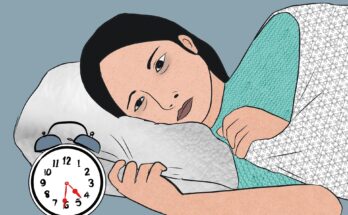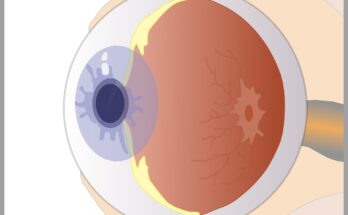
It’s summertime, the sun is shining, and in the northern hemisphere, the evenings are long. And at this time of year, it’s usual to see runners taking to the footpaths and roads to run 5 kilometers, 20 kilometers, or even more. Many runners enjoy long-distance running and reap its health benefits, but many also run into trouble, experiencing adverse effects on their health, such as injuries. To understand why this is the case, the Ph.D. research of Luuk van Iperen turned to a psychological perspective to predict and optimize health outcomes for long-distance runners.
Understanding and predicting why injuries, chronic fatigue, and training vigor differ among long-distance runners (those training for half and full marathon distances) is crucial, given the popularity of running and its high injury incidence. Unfortunately, understanding why certain adverse health outcomes occur remains challenging.
“Many professional athletes turn to sports psychologists to help achieve great feats—whether it’s in football, swimming, or golf,” says Luuk van Iperen from the Human Performance Management group at TU/e. “It may also be useful to evaluate how such a psychological perspective can help long-distance runners at the recreational level, to understand how they manage their running and which health outcomes they experience as a result.” And this is exactly what van Iperen did for his Ph.D. research.
Non-runner chasing the psychological view
As much as van Iperen enjoys taking on this running-related research, his own relationship with running is ambivalent at best. “I’m not the biggest fan of running myself. To be honest, for now, I’m quite happy to avoid it altogether. I’m more into martial arts and rock climbing.”
Despite his preference for other sports, van Iperen was keen to help the numerous people who do run. “I really wanted to learn more about the psychological side of how runners view and manage their sport. Exploring this could lead to recommendations that help runners optimize their health outcomes from running. In other words, reap the positive, avoid the negative.”
Managing running-related demands
The psychological perspective used by van Iperen and his colleagues starts with two ideas. “First, runners have a variety of demands and ways to cope with these demands, such as by using resources in running and by recovering. Second, we expected all these previous factors to have physical, cognitive, and emotional components, which can help explain when certain approaches are more effective. We expected that runners would aim to optimally manage their running, which implies that they employ some degree of what we call functional self-regulation.”
In pursuit of the answer, van Iperen and his promotors Jan de Jonge, Josette Gevers, and Steven Vos turned to a combination of research methods and survey data from more than one thousand runners across two studies. “Analysis of the results from the first study showed some evidence of self-regulatory mechanisms, which were in turn related to the vigor of runners,” notes van Iperen.
Harmonious versus obsessive passion
But wait—there’s more to this story! Van Iperen also looked at the role of passion, which previous research suggests is a big part of self-regulation.
Passion for running comes in two flavors: harmonious and obsessive passion. “A harmonious runner can balance their sport with other aspects of their life. But an obsessive runner is one that dedicates most of their time to running, so much so that their life can be unbalanced. It’s the obsessive runner we were most concerned about,” notes van Iperen.
Obsessive passion was indeed found to relate to a lower usage of recovery approaches or resources to help deal with the demands of running. “These so-called ‘high-risk runners’ displayed a higher incidence of injuries and chronic fatigue,” says van Iperen.
This high-risk profile for injury was one of three psychological risk profiles that were identified, the others being the low-risk and medium-risk profile. “To help runners and coaches in the field, we designed a self-test to allow them to determine their most likely profile.”
App solution?
Van Iperen and his colleagues also developed a mobile app to support self-regulatory behavior and assessed if this app could help to reduce adverse health outcomes such as injuries. However, following a randomized controlled trial, no evidence was found in support of the app achieving this goal, indicating that further studies are required.
After his Ph.D., van Iperen will continue as an Assistant Professor at Maastricht University. There, he aims to continue researching the connection between psychological matters and health.
Psychological predictors of recreational runners’ health: Self-regulatory processes and running-related injuries, fatigue, and vigor. research.tue.nl/en/publication … ers-health-self-regu
Citation:
How the power of the mind can help reduce injuries during long-distance running (2022, July 5)
retrieved 6 July 2022
from https://medicalxpress.com/news/2022-07-power-mind-injuries-long-distance.html
This document is subject to copyright. Apart from any fair dealing for the purpose of private study or research, no
part may be reproduced without the written permission. The content is provided for information purposes only.
Source link




